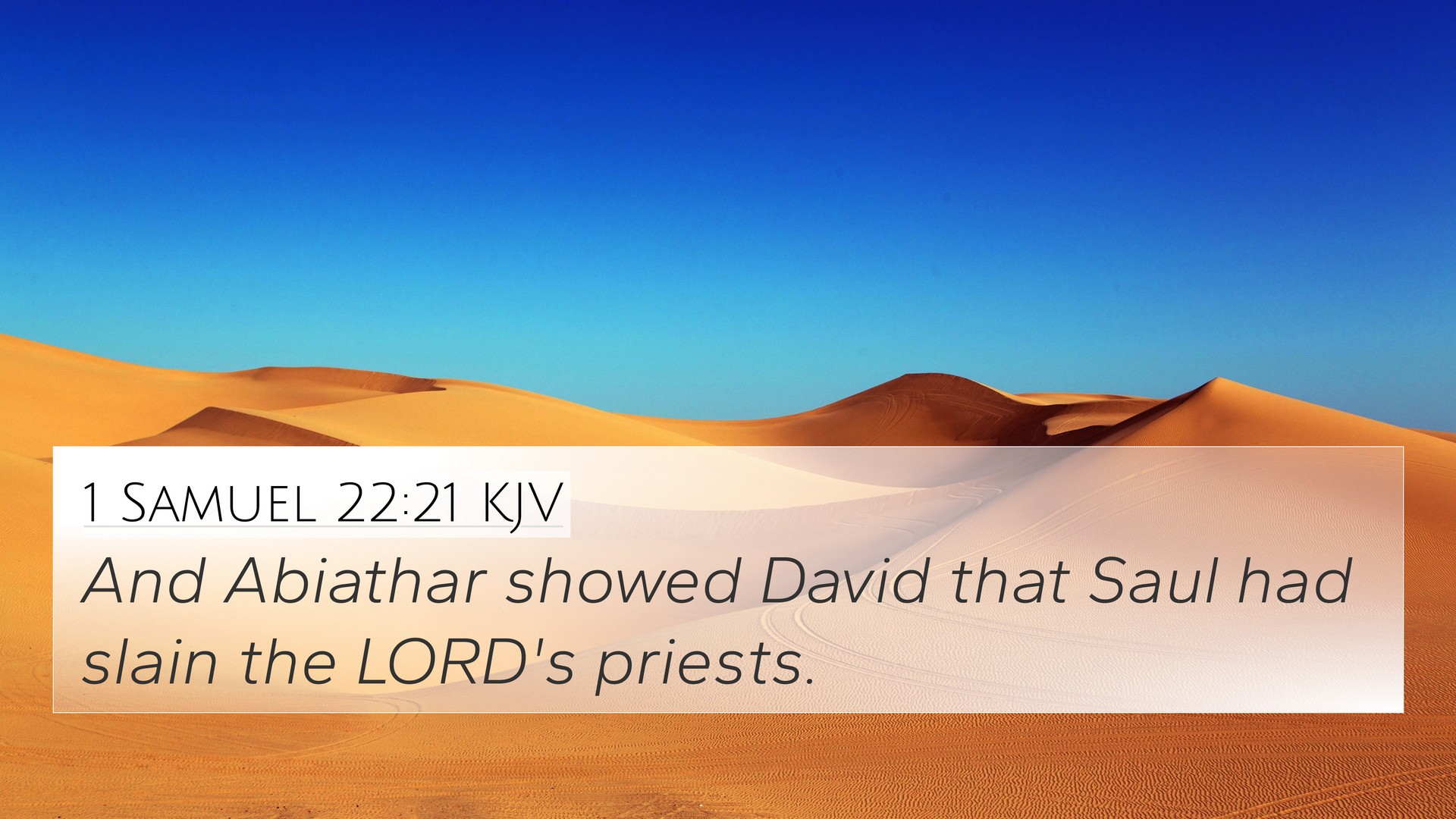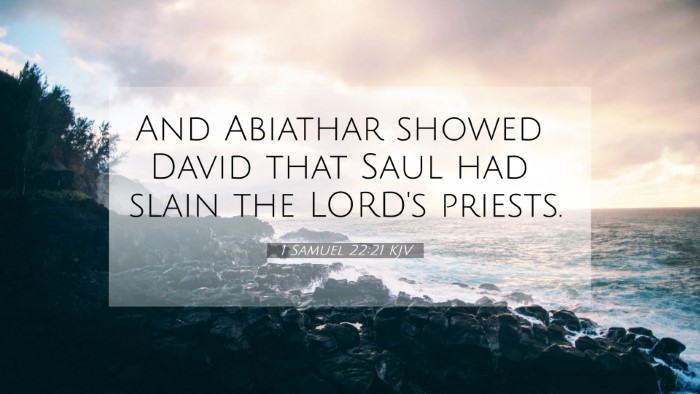Meaning and Interpretation of 1 Samuel 22:21
This verse states: "And Abiathar told David that Saul had slain the priests of the LORD." This verse is pivotal as it highlights the consequences of King Saul's actions and the significance of priestly roles in Israel's religious life.
Summary of Context
In 1 Samuel 22, we find the unfolding of dramatic events following the rise of David as a leading figure in Israel. Saul, feeling threatened by David's increasing popularity, seeks not only to eliminate David but anyone associated with him, including the priests.
Importance of Abiathar
Abiathar’s flight to David carries significant implications. As noted in Matthew Henry's Commentary, Abiathar's news comes as a harbinger of despair but also as a call to action for David. He represents the priests' loyalty to God's anointed leader against Saul's tyranny.
Historical Significance
- Saul's Rebellion: Saul's decision to kill the priests highlights his complete disregard for God’s authority and the priestly order.
- Priestly Authority: This act of violence against the priests shows the precarious position of religious leaders during Saul's reign.
- David's Leadership: David's acceptance of Abiathar reflects his idea of a righteous rule, reinforcing his claim as God's chosen.
Comparative Bible Verse Analysis
This verse connects profoundly with several other scriptures that reflect the actions of Saul and the covenant relationship between God and His people.
- 1 Samuel 15:23 - Saul's rebellion against God and the consequences that follow.
- Psalm 52:1-5 - David's reflection on the treachery and fall of Saul.
- 1 Chronicles 24:3 - The priestly lineage and their importance in God's plan.
- Matthew 2:17-18 - The fulfillment of prophecy through acts of violence against the innocent.
- Hebrews 7:11 - A contrast of the Levitical priesthood with the priesthood of Christ.
- Acts 13:21-22 - God's rejection of Saul and selection of David as a man after His own heart.
- Mark 12:38-40 - Jesus critiques the religious leaders, echoing the treachery of Saul against God's priests.
Bible Verse Cross-References
Cross-referencing 1 Samuel 22:21 opens pathways to explore theological implications and relationships between Biblical texts. Understanding the surrounding events offers insight into the complex interplay between faith and leadership.
- Connections between Bible verses reveal a consistent theme of God's sovereignty amidst human actions.
- Examining 2 Samuel 1:15 provides an insight into the subsequent impact of Saul's actions on David's life.
- Linking Bible scriptures like 2 Samuel 8 shows the consolidation of David's power after fleeing from Saul.
Tools for Bible Cross-Referencing
Using tools for Bible cross-referencing can help deepen understanding of scripture. Here are some methods:
- Bible Concordance: A valuable resource to locate specific verses and their themes.
- Bible Cross-Reference Guide: Provides insights into interconnected verses across both Testaments.
- Cross-Reference Bible Study: Engages with scriptures by comparing related passages to draw deeper meanings.
- Bible Chain References: Following themes through a series of verses helps identify overarching narratives.
Understanding the Thematic Connections
The connections between verses related to 1 Samuel 22:21 can be seen through the themes of leadership, faith, and the consequences of sin. Saul’s actions depict a dangerous path of disobedience leading to destruction, while David's acceptance of Abiathar provides a path of redemption and hope.
Conclusion
1 Samuel 22:21 is more than a historical account; it serves as a lesson in leadership, faithfulness, and God's unwavering plan amidst human failure. Through cross-referencing with other biblical texts, believers can deepen their understanding of God's character and the unfolding of redemptive history.


